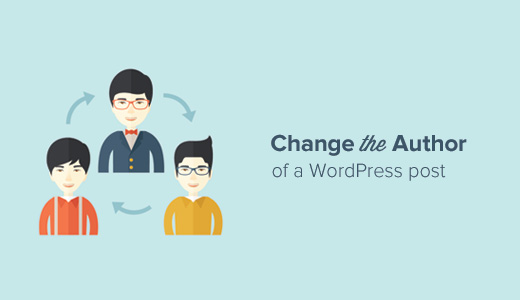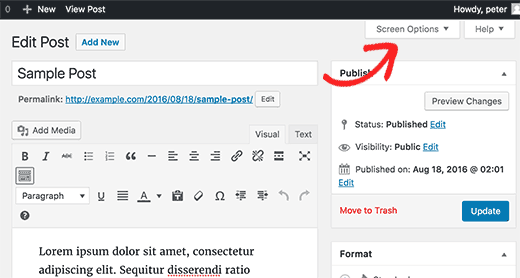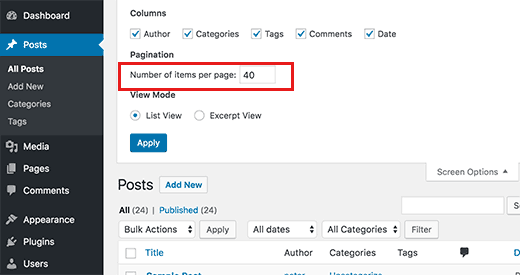alt="Why Author Rank Matters More After The Death Of Google Authorship" src="http://whsr.webrevenueinc1.netdna-cdn.com/wp-content/uploads/2014/09/1-500x490_c.jpg" />
class="alignright size-full wp-image-10951" src="http://whsr.webrevenueinc1.netdna-cdn.com/wp-content/uploads/2014/09/1.jpg" alt="1" width="330" height="324" srcset="http://whsr.webrevenueinc1.netdna-cdn.com/wp-content/uploads/2014/09/1.jpg 330w, http://whsr.webrevenueinc1.netdna-cdn.com/wp-content/uploads/2014/09/1-300x294.jpg 300w" sizes="(max-width: 330px) 100vw, 330px" />
What does an editorial by an established author have in common with all the other content pieces by all the other authors in your niche?
Too much… there are countless authors who are musing the same ideas as authoritative writers, and in similar ways.
But how should readers identify and choose content written by an authority over another writer’s work?
Google made it easy to identify the work of certain authors on the premise that ‘some people are smarter than others on certain topics’. It introduced the ‘Google Authorship’ program with the aim of giving authors who were better informed on their subject matter greater importance in search engines.
Google Authorship permitted authors to include structured data mark-ups in their website’s code which would display an author’s image with their name next to a content price so it is visible to readers who is behind the piece and make a decision according to the person’s work.
The U-turn by Google
After a multi-year experiment with Google Authorship, the search engine company has pulled the plug, and the feature is no longer available.
Google removed all author photos at the end of June 2014 from global search, and just left bylines at that time. John Mueller, Webmaster Trends Analyst, href="https://plus.google.com/+JohnMueller/posts/PDkPdPtjL6j" target="_blank">stated in a Google+ post the images were removed because Google was taking a more unified approach towards mobile and desktop search, and author images were not working well for the limited screen space on mobile.
Later, Google removed the Authorship information from search results altogether. href="https://plus.google.com/+JohnMueller/posts/HZf3KDP1Dm8" target="_blank">Muller said in a Google+ post that the reason behind ending the project was that the feature was not as valuable to readers as the company hoped and sometimes even posed a distraction.
class="wp-image-10952 size-full aligncenter" src="http://whsr.webrevenueinc1.netdna-cdn.com/wp-content/uploads/2014/09/21.png" alt="2" width="521" height="129" srcset="http://whsr.webrevenueinc1.netdna-cdn.com/wp-content/uploads/2014/09/21.png 521w, http://whsr.webrevenueinc1.netdna-cdn.com/wp-content/uploads/2014/09/21-300x74.png 300w" sizes="(max-width: 521px) 100vw, 521px" />
Perhaps this was coming as neither readers nor authors every really took Authorship seriously enough. href="https://plus.google.com/+RayHiltz/posts/8DHh2a7ihsZ" target="_blank">Its adoption rate was low, and it was only working for authors who had set up a Google+ profile and markup in their site or the sites they contributed to (rel=author) linking to their Google+ profile. For something this technical there was only ever going to be a fairly limited adoption.
But whilst this experiment into giving authors added benefits based on the authority of their work may not have proved fruitful, you would not discount Google from abandoning the idea all together, especially when it provided a logical way of increasing the trustworthiness, relevancy and authority established authors provide to their users.
It appears Google still has a way of determining author value with ‘Author Rank’.
What is Author Rank?
Author Rank, independent from Google Authorship, is a search algorithm that will score authors based on factors such as the social sharing of their posts, quality of backlinks to their content, interactions with their content, PageRank and the authority of publishing sites.
Within search rankings, information tied to these factors would rank higher than content not having an association with such factors, which will result in established authors gaining a higher visibility in search engines.
Author Rank doesn’t require implementation of any new code on your website. Essentially, Google will be accessing a value of an author based on this rank, so a user who is well-informed, well-engaged, writes great content, and is recognized by a large community, will enjoy a higher author ranking.
href="https://twitter.com/mattcutts/statuses/443560265808756736" target="_blank">Matt Cutts tweeted Author Rank is not implemented on every single page, but ‘it does come into play in some ways. For example, in-depth articles use that data, I’m pretty sure.’
The reason Google Authorship came into existence in the first place was due to the difficulty in filtering out individual authors. So how does Google go about helping readers correctly identify which authors are which, and which are important, is what the topic of Author Rank will center around.
Author Rank after the death of Google Authorship
class="aligncenter size-full wp-image-11087" src="http://whsr.webrevenueinc1.netdna-cdn.com/wp-content/uploads/2014/10/author-rank.jpg" alt="author rank" width="750" height="254" srcset="http://whsr.webrevenueinc1.netdna-cdn.com/wp-content/uploads/2014/10/author-rank.jpg 750w, http://whsr.webrevenueinc1.netdna-cdn.com/wp-content/uploads/2014/10/author-rank-300x101.jpg 300w" sizes="(max-width: 750px) 100vw, 750px" />
Crucially, authors will be judged in more natural ways about how useful they are to search engine readers. Some ways in which Google is looking to do this has already started to appear.
In addition to the gradual move towards sematic search, Google is likely to utilize Author Rank factors to identify certain ‘entities’ that are separate from each other in an effort to filter authors akin to its Authorship program closure in a more natural way.
How can it be, when Google has completely ignored Authorship markup at the same time?
Google considers it a better approach to identify authoritative figures in search results based on the factors that make up Author Rank.
Google will likely give more consideration to bylines, which existed long before Google Authorship. So in case you’re an author who is concerned that more Author Rank use will likely be the future, start believing. This is going to be the chief technique signaling who is the most established author of a content piece.
What the pros are doing and suggesting
href="https://plus.google.com/+KevinDuncan" target="_blank">Kevin Duncan
We bloggers cannot control what Google does, but we can take the things which made Google Authorship so effective in search results, and apply them to our blogs.
Duncan advices authors to add the perception of authority to their sites/blogs. If there is social proof about your authority, use that to your advantage. For example, you can show the comments received on your blog by the comments counter stand out in your blog’s design, or flaunt the number of followers you have on social media, like Darren Rowse has done on ProBlogger: he has proudly displayed 300,000+ subscribers and 66,000+ Facebook fans in his blog’s sidebar. Likewise, Adam Connell has an image of his connections to KISSmetrics, HuffPost, and more in his sidebar.
href="https://plus.google.com/+PamAungst" target="_blank">Pam Aungst
It may not be called “Authorship” anymore, so sure – go ahead and call that *word* dead, but author influence is very much alive.
Aungst’s strategy is to continue making efforts to increase the Google+ presence of her company’s SEO clients. She reminds that search users will still see Google+ posts from pages and friends when they’re relevant to queries, so Authorship’s death doesn’t impact these social features. That means the more audience in your target market are connected to Google+, the more likely you are going to receive recognition as an author for the content posted on Google+.
href="https://plus.google.com/101669415833397825384" target="_blank">Sam DeBord
The end of Authorship might leave us thinking that the remnants of Authorship code strewn across the Web are just a reminder of Google’s fickle behavior, but there is some really important direction left in the overall trend of the project.
DeBord suggests it may be a good idea to follow the usual clichés: create quality content; promote it; connect and engage with the right people. And just make sure Google sees you making these efforts. You can’t generate a good Author Rank without generating good material, so start publishing quality pieces. If Google recognizes who you are, and you continue doing it right, you’ll be rewarded eventually.
More Readings
- href="https://plus.google.com/+EricEnge" target="_blank">Eric Enge’s post ‘href="http://searchengineland.com/goodbye-google-authorship-201975" target="_blank">It’s Over: The Rise & Fall of Google Authorship For Search Results’
- href="https://plus.google.com/+MarkTraphagen" target="_blank">Mark Traphagen’s post ‘href="http://elifennell.com/google-authorship-search-extraterrestrial-intelligence/" target="_blank">End of Google Authorship Is NOT the End of Author Authority Online’
- href="https://plus.google.com/+EliFennell" target="_blank">Eli Fennell’s post ‘href="http://elifennell.com/google-authorship-search-extraterrestrial-intelligence/" target="_blank">Google Authorship & the Search for Extraterrestrial Intelligence’
- href="https://www.linkedin.com/profile/view?id=30858233" target="_blank">Joey Hall’s post ‘href="http://enveritasgroup.com/2014/09/18/authorship-died-sucks-man/" target="_blank">Authorship died. And it sucks, man.’
- href="https://plus.google.com/+NateDame" target="_blank">Nate Dame’s post ‘href="http://propecta.com/google-authorship-what-we-still-dont-know" target="_blank">What We Still Don’t Know About the Death of Google Authorship’
So, given the propensity of Google to consider new elements when ranking authors, it seems the best long-term play is to ensure that your digital wingspan places a focus on factors that affect Author Rank.
you should…
- Share your content on social networks, and encourage your followers to share your posts further.
- href="http://www.webhostingsecretrevealed.net/blog/inbound-marketing/how-to-drive-massive-traffic-to-your-blog-via-guest-blogging/" target="_blank">Contribute to other blogs, websites, magazines, etc. Your contributor byline will play an important role in getting your figure recognized and the anchor link used in that byline can be used to gain backlinks to your other content pieces.
- Promote yourself as an author in online communities other than social networks, such as forums and comment sections of other websites.
- Write data-rich content, for a chance to be featured in the ‘in-depth’ section of Google Search.
More about in-depth content
Why I suggest focusing on getting yourself featured in Google’s in-depth section?
The main reason is that it contains pieces that are published by highly established authors. These pieces include detailed business reports, whitepapers and case studies; this form of content requires a lot of effort on the author’s part and Google recognizes that. The search giant’s Hummingbird algorithm even places more emphasis on rich content, so in-depth content pieces are a great way to increase your author value.
So, how do you get closer to achieving recognition in the in-depth section? Here are some actionable tips that should help:
1. Implement Schema.org markup
Google recommends adding a piece of code to your publication marking its
- Alternative Headline
- Headline
- Description
- Date Published
- Crawlable and Indexable image
- Article Body
Ready-made templates are available at Schema.org/Article.
2. Use Google Authorship
I assume most of you reading will already be doing this. href="http://www.copyblogger.com/wordpress-google-authorship/" target="_blank">Get it back if you’ve removed Authorship for the content you create.
3. Use pagination
If you create an in-depth piece that is spread across multiple pages, let Google know these pages make up a single article by using pagination. href="http://googlewebmastercentral.blogspot.com/2012/03/video-about-pagination-with-relnext-and.html" target="_blank">See this video from Maile Ohye.
4. Add a logo
Specifiy your company’s logo to help your piece in getting selected for the in-depth section. This can be done either through
• href="http://schema.org/Organization" target="_blank">Using Organization markup from Schema.org, or
• href="http://www.google.com/+/business/?rd=1" target="_blank">By linking your Google+ page to the website
5. Produce rich content
This is the most important step to ensure that your in-depth articles get picked up by Google for having detailed, informative and rich content within them. All the stats, data and information needs to be updated if you’re going to achieve some recognition as an influential author, because you’ll be competing against some of the biggest names in your industry… authors from the likes of The Huffington Post, Wall Street Journal and New York Times. Also, remember to follow href="https://support.google.com/webmasters/answer/3280182?hl=en" target="_blank">Google’s recommendations on marking up critical details about your in-depth content piece.
Conclusion
The good news is if you’ve already been spending time building yourself as a leading author in your niche, your work towards these factors is already likely cut short.
Author Rank and factors that affect it may currently be a minor ripple on the sea, but with the death of Google Authorship, it is the only practical thing to lean on.
Page 11 – Web Hosting Secret Revealed








